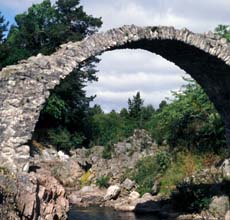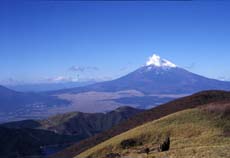index
Informational complexity
click on images for full-size:



This bridge in the Scottish Highlands can be described geometrically or architecturally, but its reality involves all the complexities of British military construction and aggression in Scotland.

Mr. Fuji can be easily designated, but what would it mean to give a full description of its reality?
Complex things are more difficult to describe than simple things. Computer scientists have sought for ways to characterize the complexity of computer programs, and information theory looks for ways to characterize the complexity of messages. In these cases, complexity can be measured by the length of the shortest list of instructions needed to implement the program or communicate the message. Is this sort of criterion usable for the complexity of places? In a general sense, yes, but in detail, not very well. We would expect a complex place to require a long, many-leveled description that would show the intricate relations among the parts of the place and the forms of life involved. However, there is no easy correlation between length of description and complexity of place, since there are no criteria for when descriptions of places are both adequate and as short as they could be. St. Peter's Square in Rome can be denoted with a few words and described in many ways at varying lengths, but there is no criterion to decide what it means to fully specify the place.